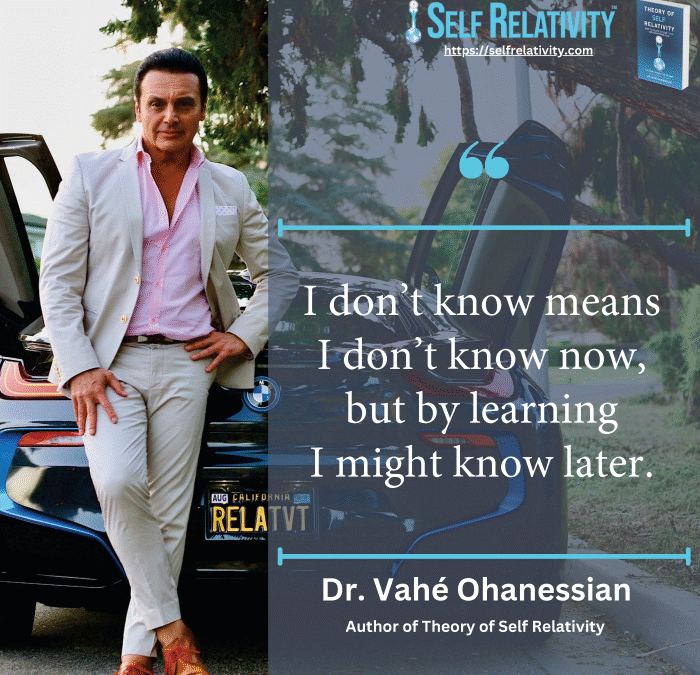
Money & Happiness
November 16, 2021
Power of Mind
December 4, 2021“I don’t know means I don’t know now, but by learning I might know later.”
Many because of their own personal-weaknesses and insecurities think that not knowing or saying “I don’t know” is a negative reflection of their Self. They do not consider that “I don’t know” means “I don’t know now”; but it could also mean that by learning “I might know later.” In reality, not knowing is not shameful or wrong therefore we don’t have to speculate or concoct an assumptive cause, a reason or an imaginary or supernatural intentional-agent for our lack of knowledge. We don’t have to fill the gap of not knowing something by giving or creating a nonsensical or nonfactual made-up answer in order to feel better.
By nature, human-beings have difficulty in not knowing something hence the reason why it is often difficult for people to simply say “I don’t know.” By speculating, assuming and by even falsely creating beliefs which are misrepresented as knowledge; people will come up with any explanation in order to fill in the knowledge-gap. And while assuming or fabricating a cause or a reason for something, they will take that fabrication and assumption a step further by filling the gap through rationalization with fallacious-beliefs, flawed-reasoning and with non-existent agents.
Additionally, by saying “I don’t know” and by admitting lack of knowledge, many due to their own low self-esteem equate saying “I don’t know” with “I’m stupid.” They not only believe that by saying “I don’t know” they would come across as being stupid by others; but their own weak sense of Self also believes that if they don’t know that means they are stupid. Such individuals are generally defensive in nature and lack introspection because to them “I don’t know” is synonymous with “I’m an idiot”, “I’m not good enough” and especially in personality-disordered people such as narcissists and borderlines, “I don’t know” means “I am bad.”

